Back in her early twenties, Alexa Leigh Mufson (then Meyer) was working in ad sales in Manhattan, unhappy in her job and longing for a creative outlet. She’d always loved jewelry (“I was one of those kids who made friendship bracelets at camp,” she says). So when a favorite necklace went missing, “I tried to make it myself with an old bottle cap, and a glue gun.”
Alexa quickly realized that her homemade creation was “not going to be the quality I was looking for,” she says with a laugh. But she surprised even herself when she started visiting the Diamond District on her lunch break, searching for a jeweler who could bring a sketch of her necklace to life. She had already put her own imprint on the original design. “If you know me, this doesn’t make any sense,” she says. “I’m very introverted and shy!” But she was feeling desperate. “I needed to make something,” she says. “I needed to make something happen.”
“I love the sentimental value of jewelry. To me, that’s what separates it from a bag or a sweater.”
—Alexa Leigh
Alexa endured a lot of no’s and doors closed in her face. But eventually she found a jeweler to make her a sample. Soon she had an entire collection of necklaces, then bracelets and anklets that she sold to friends and family via word of mouth, packing orders out of her apartment at night. She always took care to include a handwritten note in each box. But she had no business plan—she was just “putting one foot in front of the other,” she says, letting things grow organically. Her jewelry was just a fun side hustle.
By day, Alexa was still climbing the corporate ladder, rising to become director of ecommerce and creative director at the activewear startup Bandier. It was a job she loved—but after her first child was born, her priorities shifted. “I was the only one who had a child,” she recalls. “I’d have meetings at 6 pm” (this was pre-pandemic, when few had the option to WFH).
Suddenly, Alexa’s jewelry side hustle started to seem like an opportunity. “I really wanted to be home for bedtime and bathtime,” she says. She and her sister, who had been working for Alexa Leigh on the side, got to talking. “We thought, let’s take everything I learned from my jobs and apply it to our own company,” says Alexa. “Maybe we can make something of it” (“Where your energy goes, that’s what grows!” she adds, paraphrasing Tony Robbins.) Together, they took the leap, quitting their full-time jobs in 2019.
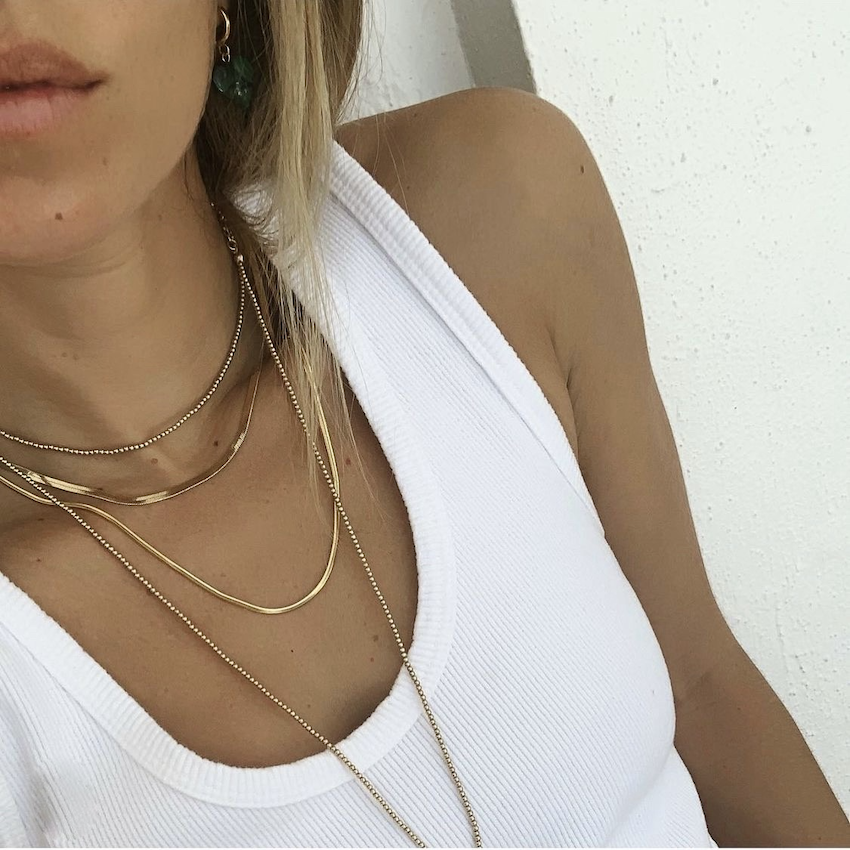
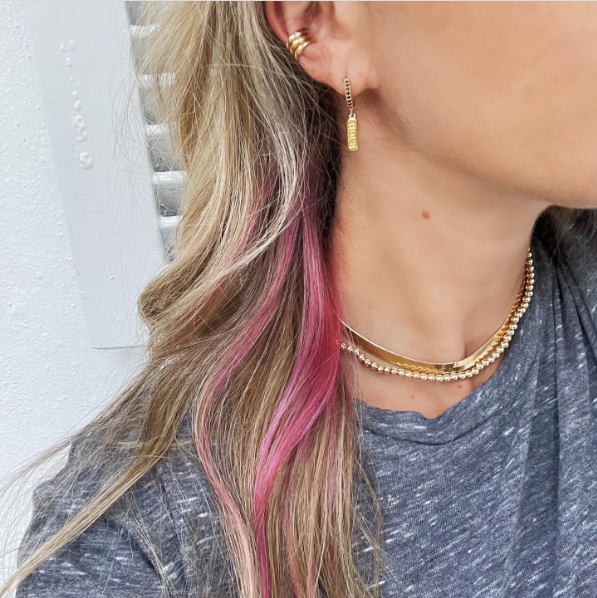
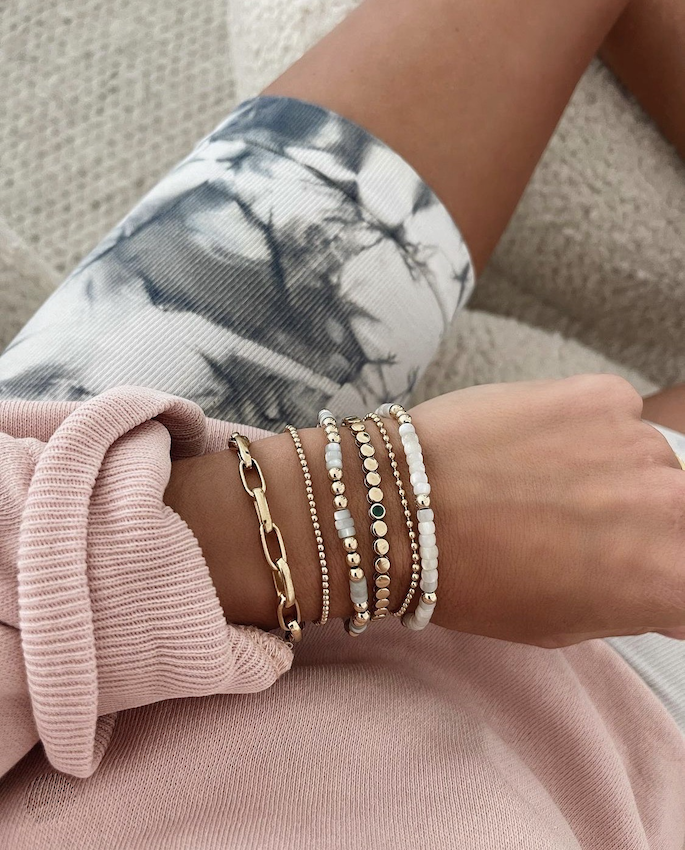
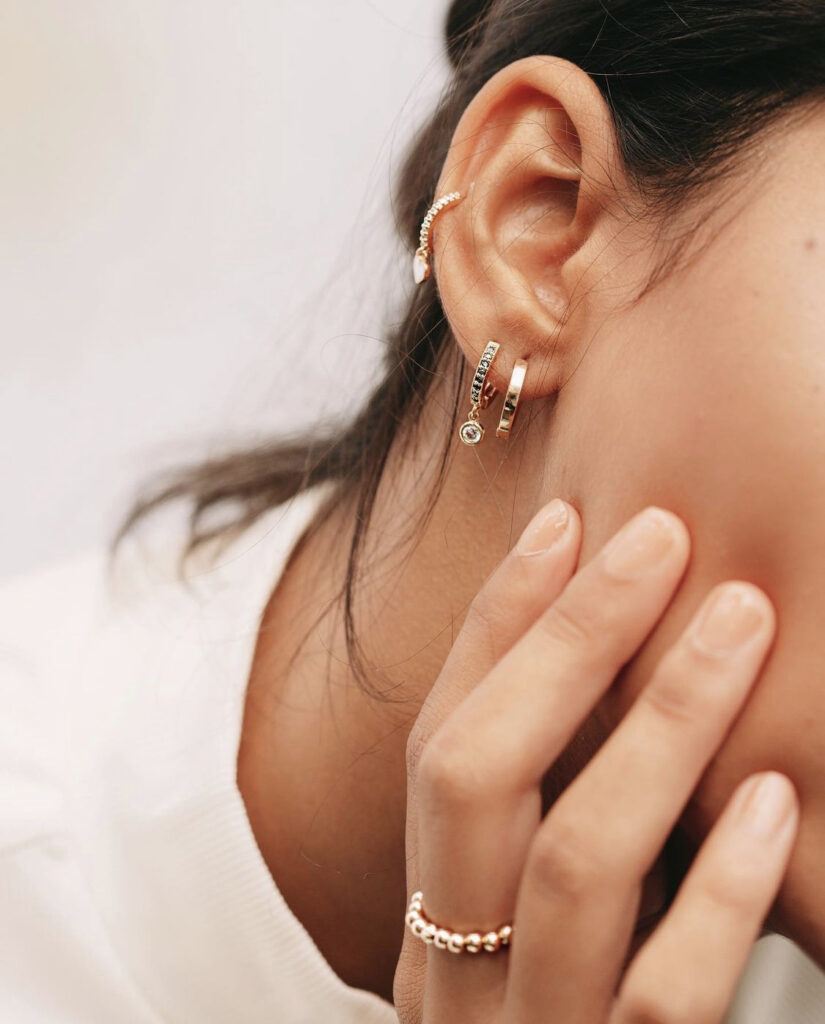
Alexa Leigh pieces are delicate and personal but durable, meant to be worn every day rather than saved for special occasions.
Motherhood also inspired a creative pivot. Crawling around on the floor with a toddler, Alexa noticed that she’d basically stopped wearing her own jewelry (“It was all really delicate, and where was I going?”). She had the idea to start making pieces she could wear in the pool, that could survive getting yanked on by tiny hands. The solution: 14k gold-filled, which was not as expensive as her previous 14k pieces but more durable than gold-plated.
The first round of updated Alexa Leigh designs involved tiny delicate gold balls. Alexa started an irreverent hashtag, #showmeyourballs. The orders rolled in. “Shortly thereafter, things started to become really insane,” Alexa says. Today she’s based in Miami and has three kids and four full-time employees. She makes pieces that are hardy but still personal—meant to be worn and cherished daily, not kept for special occasions. “I hope people will wear them for a really long time,” she says, “and then hand them down to their daughter or granddaughter.”
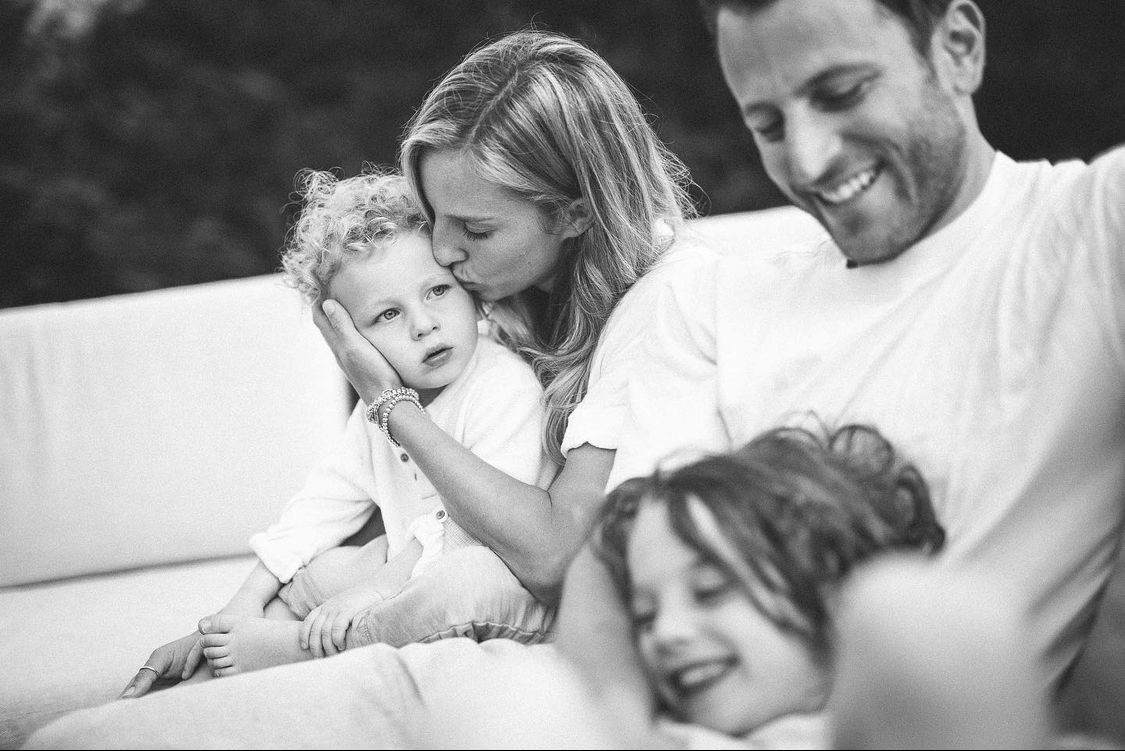
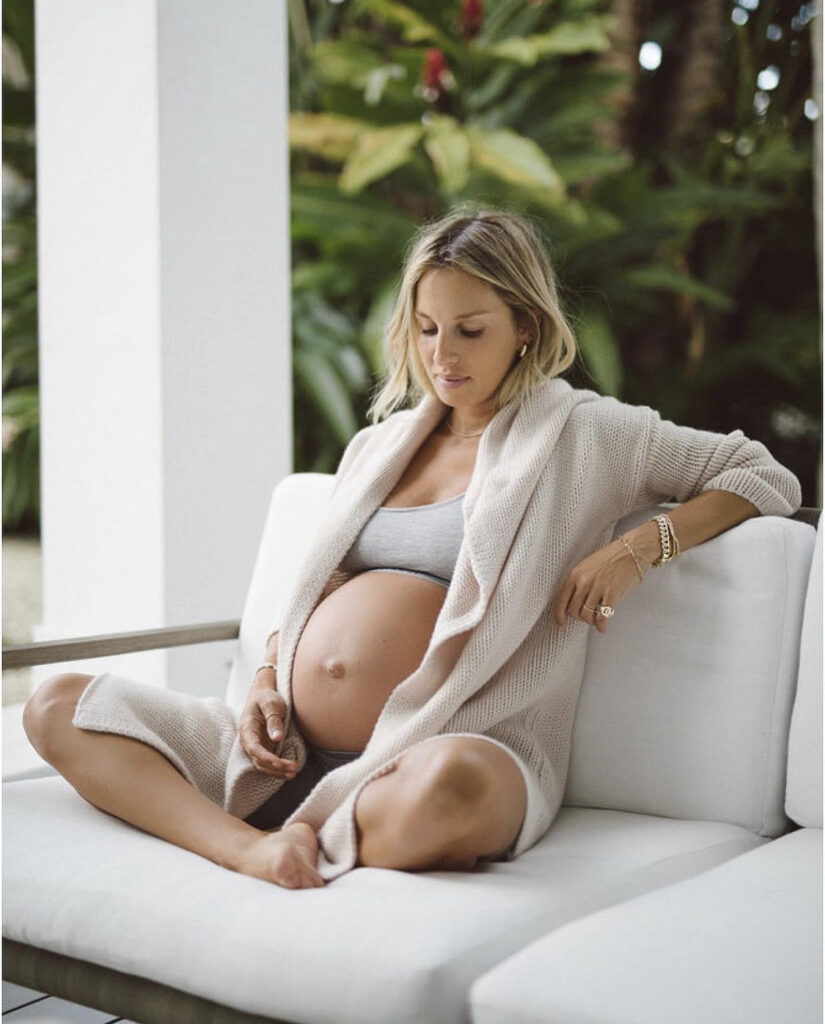
Alexa shares glimpses of her life and style—infused with a generous amount of wit—on Instagram.
What’s your best advice for entrepreneurs?
“When I started out, I had no connections in the industry, and I didn’t want to bother anyone. But really, everyone is so flattered when you ask for help! I think people are more willing to help than we realize.”
What’s your best advice for entrepreneurs?
“When I started out, I had no connections in the industry, and I didn’t want to bother anyone. But really, everyone is so flattered when you ask for help! I think people are more willing to help than we realize.”
What’s your best advice for entrepreneurs?
“When I started out, I had no connections in the industry, and I didn’t want to bother anyone. But really, everyone is so flattered when you ask for help! I think people are more willing to help than we realize.”
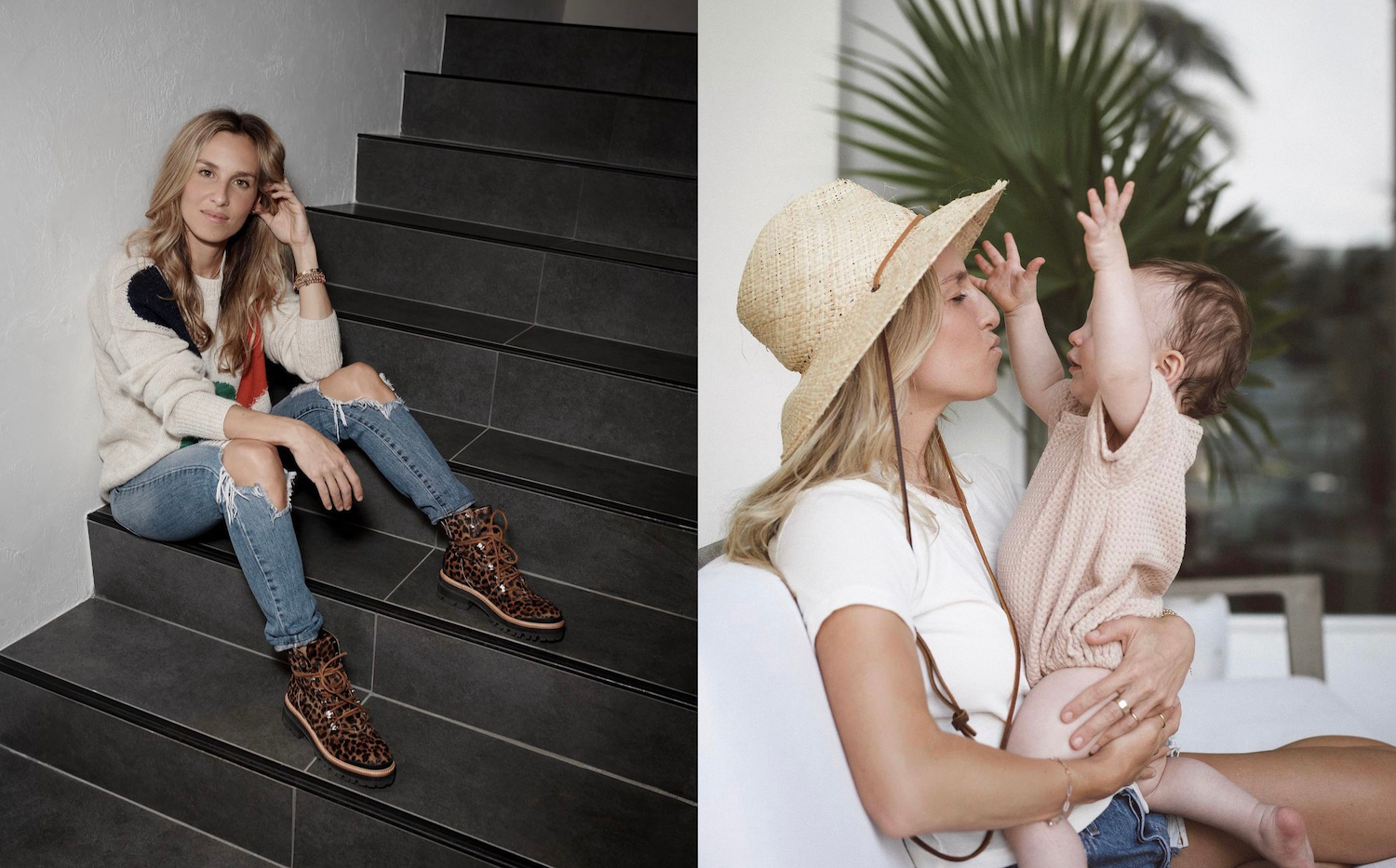
 ">
">
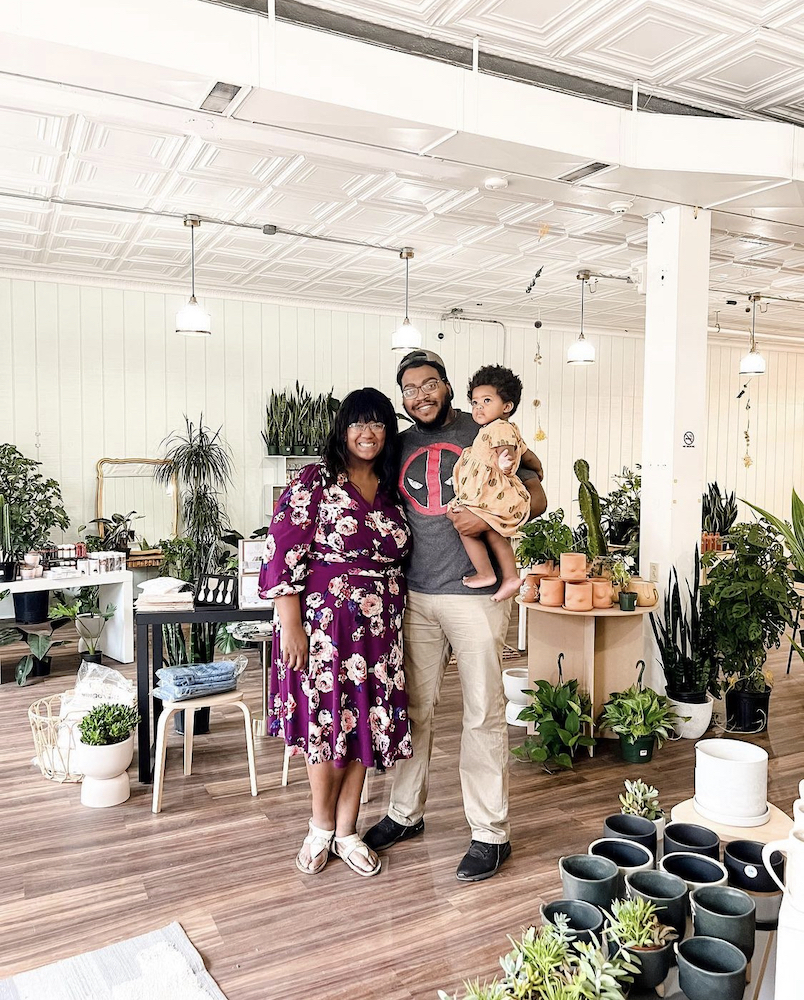 ">
">
 ">
">